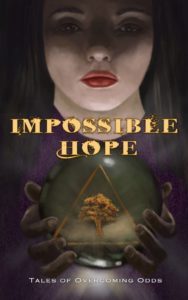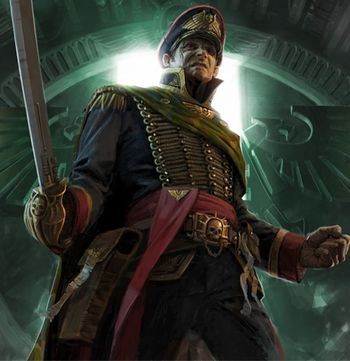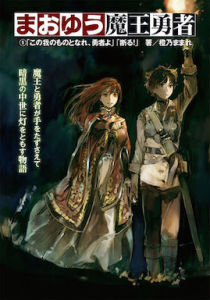Yes, I still haven’t come up with a working title for this viking-esque romp. I’m not fully finished with the story yet, so that’s probably why. Sometimes story titles refuse to come to me until I’m ready to push it out the door. Not sure if that’s laziness on my part or if I’m just bad at naming things. Either way, here we are.
I’m deviating from the (currently) established norm and will not show the opening scene to the story. Instead, I want to illustrate how well a fight scene can turn out once it’s gone from crappy rough draft to less crappy second draft to hopefully brilliant (At the very least, passable) final draft.
In this fight scene, Ylva (the protagonist) is facing off against Randolf, a subordinate challenging one of her decisions to the point of questioning her leadership entirely. She is an experienced shieldmaiden and has only just recently been made jarl of her town, following the death of her father. A more established jarl could get away with not accepting a challenge, but not in her case. So, the duel goes on.
This is my first time writing a fight scene since reading the book Writing Fight Scenes. In it, Rayne Hall breaks fights/battles/scuffles/violent action into six main areas:
- Suspense – the proverbial calm before the storm.
- Start – what it says. The opening blows, the opponents sizing each other up, etc.
- Action – the fight begins in earnest.
- Surprise – optional depending on type of fight, but adds depth. Could be anything from a sword shattering to a monsoon occurring.
- Climax – the final, decisive moves.
- Aftermath – the winner dusts himself off, spouts a noir-worthy one-liner, and heads off for the next big hurrah.
I would love to show the whole fight here, as its final version is no more than 820 words from the very beginning of the Suspense phase (Even a bit before it, really) to the part where the victory has to choose whether to slay the defeated or not. But, since I’m going to be shopping this around to some professional magazines, I’d rather not shoot myself in the literary foot for revealing too much. Instead, the Start, Action and Surprise phases will be shown.
Rough Draft:
Start:
They circled one another, each holding their shields close, but with the rims facing their opponent. She had learned from her father long ago to do it
Fight:
Randolf struck first, his axe head whistling through the air. Ylva stepped back. He swung again, too fast to dodge. She caught it on her shield. The blow reverberated up her arm. She hissed, and thrust with her sword, inside his shield guard. He jumped back. She pursued.
She pushed him back with a flurry of well-placed blows. She aimed at his thighs, his abdomen, his weapon hand. He dodged or caught the strikes on his shield. They approached the challenge ring’s edge. The crowd roared.
Randolf growled, and struck with his axe. Gods, he was fast. She blocked one blow, and then another.
Surprise:
A third strike connected. Her shield split, the axe blade held fast in the wood.
“Not even the Kraken could break that!” someone yelled.
A flash of anger ran through Ylva. Her father had given her this shield! She twisted and wrenched the axe from Randolf’s grip. She threw shield and weapon away.
Badly written, right? Well, that’s what rough drafts are for. Too much information (Does it really matter exactly how they’re holding their shields? They’re holding them. The reader can imagine it how they like), too many passive verbs (Was/Were). It’s also a bit lacking for a fight between individuals who are well-matched against one another, one with strength (Randolf) and the other with experience (Ylva). There’s also not much in the way of emotion on either’s part.
But, the basic structure is there. Let’s see what we can do to make it a bit better:
Second Draft:
Suspense:
They retreated a couple of steps, and then circled one another. Ylva kept her feet close to the ground, her boots clinging to the hard-packed dirt until she needed to move them. The crowd kept silent. No one wanted to miss the first strike.
Action:
Despite his earlier confidence, Randolf moved in cautiously. Ylva took advantage of his hesitance and slashed at his axe-hand. He jerked away and deflected her blade with the rim of his shield. He raised his axe to strike her, but stabbed just as he opened his guard. The point tore through his shirt and cut his chest. He grunted.
“First blood to the Jarl!” Tyr shouted, his voice almost lost over the screaming crowd.
Ylva tried to press her advantage, but Randolf counterattacked. The veins in his neck and head stood out as he advanced. His axe rose and fell in a flurry of blows. Ylva dodged some, but blocked others with her shield. The repeated impacts reverberated up her arm. Her shoulder grew numb.
Surprise:
Randolf swung again. Ylva raised her shield. Woodchips sprayed. He tried to jerk the blade free, but it held fast. She wrenched the shield back. The axe came with it. She flung shield and weapon away.
In this version another character, Tyr, is introduced. He’s basically the town priest and the one who oversees such challenges to the jarl’s authority. In this instance he’s part referee, part announcer.
So, it’s gotten better, even if not by much. There’s a definite build-up of action, and passive verbs have taken their peace-loving hippy ways elsewhere. While they’re all right in other scenes, they won’t do in action scenes. Or, I should say they’ll rarely do. There are few absolutes in writing, after all.
Now, for this last one – the final draft as of now – I’ll show just a bit more of the surprise phase. I decided on having two surprises during this fight: one where Ylva seems to gain the upper hand, one where Randolf seems to take the advantage back. It finishes in a brutal climax shortly after, but hopefully it’ll make it somewhere so everyone can read it.
Final Draft:
Start:
Ylva and Randolf circled one another. She kept her feet close to the hard-packed dirt. He made wide steps, as if to remind her of their difference in size. The crowd kept silent. No one wanted to miss the first strike.
Action:
Randolf lunged forward. Ylva danced back. He struck again. The axe glanced off her shield. She slashed at his exposed arm. He twisted away and deflected her sword with the rim of his shield.
He raised his axe. His shield shifted slightly. She stabbed into that sudden gap. Her blade tore through his shirt and pricked his chest. He grunted. Blood stained the ripped cloth.
“First blood to the Jarl!” Tyr shouted. The townsmen cheered.
A line of crimson ran down the length of Ylva’s sword. Her dagger had looked the same that day. Her chest constricted. Hot guilt burned through her. She couldn’t let it touch her. Not again. She flicked the accursed liquid away with a wild swing.
Light flashed overhead. Panic seized her. Sindri’s knife? No, Randolf’s axe!
She snapped her shield up. His heavy blade slammed into scarred wood. The impact reverberated up her arm. Her shoulder ached.
The veins in Randolf’s neck and head stood out as he advanced. His axe rose and fell in a flurry of blows. Ylva’s arm went numb. She gasped for breath. Gods, he’s fast!
Surprise:
He swung again. The axe bit into her raised shield. Woodchips sprayed, and the blade held fast when he tried to jerk it free. Her shoulder screamed in protest. With a cry, she wrenched the shield back. The axe flew out of his hands. She flung both away.
The roar in her ears drowned out the roar of the crowd. She rotated her left shoulder to work the numbness out.
Even unarmed, Randolf continued to advance. She stabbed and slashed. He dodged and blocked with his shield. Her sword went wide.
He stepped inside her guard. His fist connected. Pain exploded in her jaw. She staggered back.
Randolf slammed into Ylva. His weight bore them both down. She landed hard on her back. Her sword skittered across the dirt. She reached for her dagger.
He pressed against her flesh and pinned her left hand to her side. His arm pushed against her throat. She struggled for air that would not come. He leered down at her.
Ylva’s right hand scrabbled through the dirt for something, anything. Her vision blurred, and darkened at the corners. Fear jolted through her.
Ok, so part of that last bit is the beginning of the climax phase. But, I figured that last sentence was the best place to stop. The most dramatic place, in any event. Our heroine is seemingly down for the count. How is she going to defeat him? What’s for dinner that night? Oh, wait, that last one doesn’t get covered here. Sorry. (That’s what I get for writing blog posts before dinner)
It was during this draft that I really tried adhering to the 6-part structure, and I think it’s turned out ten times better than the previous iterations because of it. Is it good enough to sell to someone? Well, I’d like to think so. But, I know more work can be done on it. More work can always be done.
Oh, if you’re wondering what the “Sindri’s knife?” line is about, Ylva is suffering from a little bit of PTSD from the last battle she was in. I won’t say more, but there are instances of this scattered throughout the short story, reminders for her of a recent event that she is ashamed and horrified of.Anyway, I hope you enjoyed this foray into fight scenes. At the very least, seeing how horrible my earlier drafts are should encourage anyone to get a rough draft out. Even if you think it’s terrible, realize this: it’s terrible for most of us! Get through it, and get to the editing. Editing is where the real writing begins. It’s where the magic happens.
So, there you have it. My first attempt at writing a fight scene in 2015. Did Rayne Hall’s book help me? I think so. I’ve always loved writing fight scenes, but I don’t think I fully understood how to account for the build-up of action and the general ebb and flow of chaotic situations. But, I’ll have more experience in a short while. I’m currently outlining a book that will have several fights in it. I expect I’ll showcase more of them here.
Hurray, more exposure for my crappy first drafts!
 The theme of Impossible Hope was inspirational stories, stories that people could take hope from. There was no genre limitation, so the stories ran the gambit from nonfiction to fiction, literary to speculative. Since I can’t help but write speculative fiction, my story “Blue Pearls” was a modern-day / near-future fantasy about a deep dive worker operating out of Ago Bay in the part of Japan where they have a lot of pearl beds.
The theme of Impossible Hope was inspirational stories, stories that people could take hope from. There was no genre limitation, so the stories ran the gambit from nonfiction to fiction, literary to speculative. Since I can’t help but write speculative fiction, my story “Blue Pearls” was a modern-day / near-future fantasy about a deep dive worker operating out of Ago Bay in the part of Japan where they have a lot of pearl beds.
 Nevermind Valentine’s Day. Let’s talk about first loves with books. I first fell in love with Warhammer 40000 way back in 2008, when Borders was still around. There was one right next to the office I worked in, and I’d spend more lunch breaks than I care to admit in the bookstore, browsing and trying to figure out what to read on my commute back home. I’m normally into fantasy, so you’d think my first foray would be a rousing, sword-slinging tale of Sigmar’s Empire and its eternal fight against Chaos, but no. The first one I picked up was the first Gaunt’s Ghosts Omnibus, “The Founding” by Dan Abnett. I burned through the first few chapters in my short lunch break, then bought it and spent the next several days reading it to and from work. Then I grabbed the next one, then it was on to the more recent ones that hadn’t been combined yet, and so on until I’d read them all and needed more Warhammer. At that point I didn’t care if it was fantasy or sci-fi; I just wanted more Warhammer.
Nevermind Valentine’s Day. Let’s talk about first loves with books. I first fell in love with Warhammer 40000 way back in 2008, when Borders was still around. There was one right next to the office I worked in, and I’d spend more lunch breaks than I care to admit in the bookstore, browsing and trying to figure out what to read on my commute back home. I’m normally into fantasy, so you’d think my first foray would be a rousing, sword-slinging tale of Sigmar’s Empire and its eternal fight against Chaos, but no. The first one I picked up was the first Gaunt’s Ghosts Omnibus, “The Founding” by Dan Abnett. I burned through the first few chapters in my short lunch break, then bought it and spent the next several days reading it to and from work. Then I grabbed the next one, then it was on to the more recent ones that hadn’t been combined yet, and so on until I’d read them all and needed more Warhammer. At that point I didn’t care if it was fantasy or sci-fi; I just wanted more Warhammer. The story began as an idea taken from the concept behind the book series and anime
The story began as an idea taken from the concept behind the book series and anime